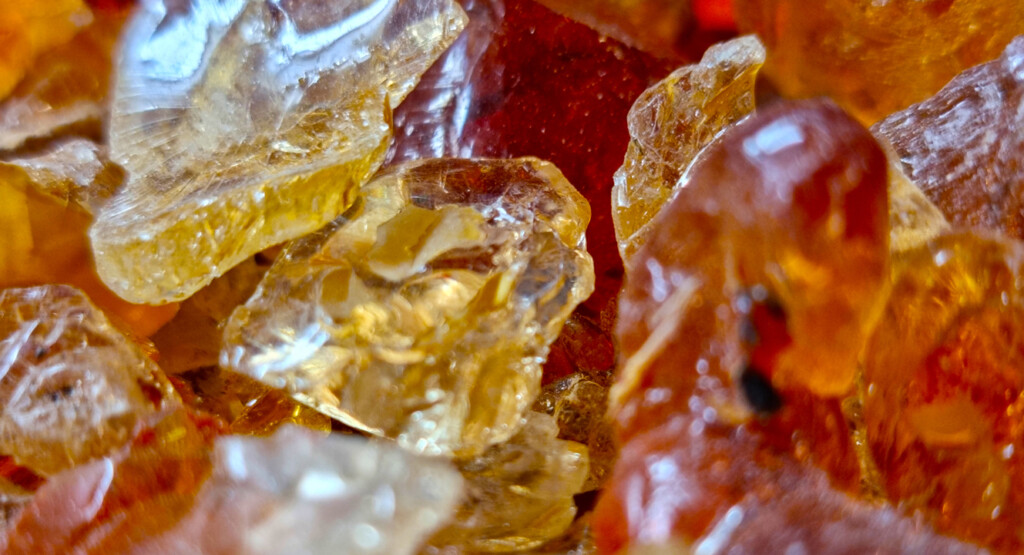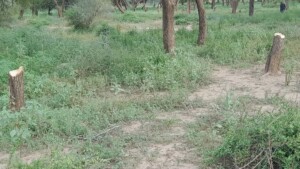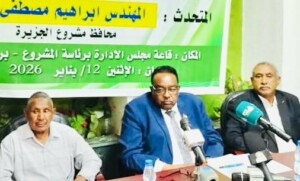Sudan conflict alarms world gum arabic market

Gum Arabic (File photo: AMB / RD)
KHARTOUM –
Potential disruptions to the supply chain of gum arabic*, as fallout from the Sudan conflict, is causing alarm among international manufacturers. As about 70 per cent of the world’s supply comes from acacia trees in Sudan, the ongoing impact on the economy has led to stockpiling efforts by companies, and disruptions in trade.
There are reports that international companies that depend on a reliable supply of gum arabic, such as major soft drink producers, have been stockpiling supplies to mitigate potential shortages.
Exporters and suppliers have reported a halt in trade due to the breakdown in logistics, particularly in the capital Khartoum, and to port operations in Red Sea state which have prioritised civilian evacuations over commercial activities.
The impact this year is more significant than previous conflicts, which were typically localised in remote areas like Darfur, so that current stockpiles may only last about five to six months.
This could impact the Sudan economy in the longer term as the cosmetics and printing industries seek alternatives, however there is no such alternative for gum arabic as an emulsifier in fizzy drinks, where it is used to prevent the ingredients from separating.
The significance of gum arabic to the consumer goods industry is evident from its exemption from US sanctions** against Sudan since 1997. This exemption was granted due to its critical nature and the fear of creating an informal market.
In 2021, Sudan received a €10 million grant from the EU to restructure its gum Arabic sector and in 2020, the Netherlands agreed to support and facilitate the establishment of gum processing factories.
* Gum arabic is an emulsifier and a stabiliser made from resin from the acacia Senegal tree. Apart from shoe polish and ink, the food industry uses the stabiliser in chocolate and sweets, and, most importantly, in soft drinks, as it binds the sugar to the drink.
Sudan is the world’s foremost producer at an estimated 88,000 tons a year. Sudan, Chad, and Nigeria, produce 95 per cent of gum Arabic exported to the world market.
The gum Arabic belt covers about one fifth of the country. North Kordofan and North Darfur are the largest producers, followed by the states of Blue Nile, White Nile, and El Gedaref.
In the past years, Sudanese economists reported a decline in the export of gum Arabic. They have urged Khartoum to step up the production of gum Arabic to bridge the economic crisis in the country while at the same time meeting the growing demands in the world.
** USA-Sudan relations
After a distinct thaw in US-Sudan relations following the overthrow of the Al Bashir regime and a movement toward democratic transition, relations between Washington and Khartoum have been strained following the subsequent military coup d’état of October 25, 2021.
The USA suspended all aid to Sudan following the coup, stating that “the USA is pausing assistance from the $700 million in emergency assistance appropriations of Economic Support Funds for Sudan. Those funds were intended to support the country’s democratic transition as we evaluate the next step for Sudan programming.”
In 2022, the US Senate confirmed John Godfrey as Ambassador Extraordinary and Plenipotentiary of the USA to Sudan. Sudan had been served by a deputy ambassador, making Ambassador Godfrey the first fully ranked US ambassador to Sudan in 25 years.
On May 11, the US Senate passed a draft resolution “to condemn the military coup in Sudan and support the Sudanese people,” and the UK House of Commons also unanimously passed the non-binding resolution with a quick vote without any objections.
On March 23, the US Senate’s Foreign Relations Committee unanimously approved a draft resolution condemning the military coup in Sudan and calling on the US administration to impose sanctions on those responsible for the coup.
The draft resolution came two days after the US Treasury imposed sanctions on the paramilitary Central Reserve Forces (popularly called Abu Teira) that stand under the command of the police, in accordance with the Global Magnitsky Act on serious violations of human rights.
The Treasury listed the excessively violent repression of peaceful pro-democracy protests by the security forces as the main reason.
There have been wide calls for targeted US sanctions on the Chairman of Sudan’s Sovereignty Council Gen Abdelfattah El Burhan and deputy Chairman Mohamed ‘Hemeti’ Dagalo for their involvement in serious human rights abuses following the coup.
In March, the US Department of the Treasury’s Office of Foreign Assets Control (OFAC) announced sanctions on the Sudan Central Reserve Police (CRP, popularly known as Abu Tira) for serious human rights abuse yesterday. The Treasury listed the excessively violent repression of peaceful pro-democracy protests by the security forces as the main reason.
Last week, OFAC announced sanctions against ‘Sudan companies with links to Hamas‘, with one financier, Hisham Younis Yahia Qafisheh, allegedly “operating and managing at least two Sudan-based companies, Agrogate Holding and Al Rowad Real Estate Development, in order to generate revenue for the Palestinian group.”
Bilateral agreement
In November 2020, Sudan and the US signed a bilateral claims settlement to resolve “default judgements and claims based on allegations that Sudan’s prior regime supported acts of terrorism”. According to the agreement, Sudan had to pay $335 million, on top of approximately $72 million already paid, for distribution to victims of terrorism.
Sudan’s removal from the SST list, decreed in the dying days of the Donald Trump administration, was conditional on a bilateral claims settlement signed in November 2020 to resolve “default judgements and claims based on allegations that Sudan’s prior regime supported acts of terrorism”. Sudan had to pay $335 million, on top of approximately $72 million already paid, for distribution to victims of terrorism.
In exchange, after payment of compensation to the families of the victims of the bombing of the destroyer USS Cole in Yemen in 2000, and the 1998 bombing of the US embassies in Dar El Salaam in Tanzania and Nairobi in Kenya, the default judgments and claims against Sudan in US courts would be dismissed, and Sudan’s sovereign immunities under US law would be restored to those enjoyed by countries that have never been designated by the US as a State Sponsor of Terrorism (SST).











 and then
and then